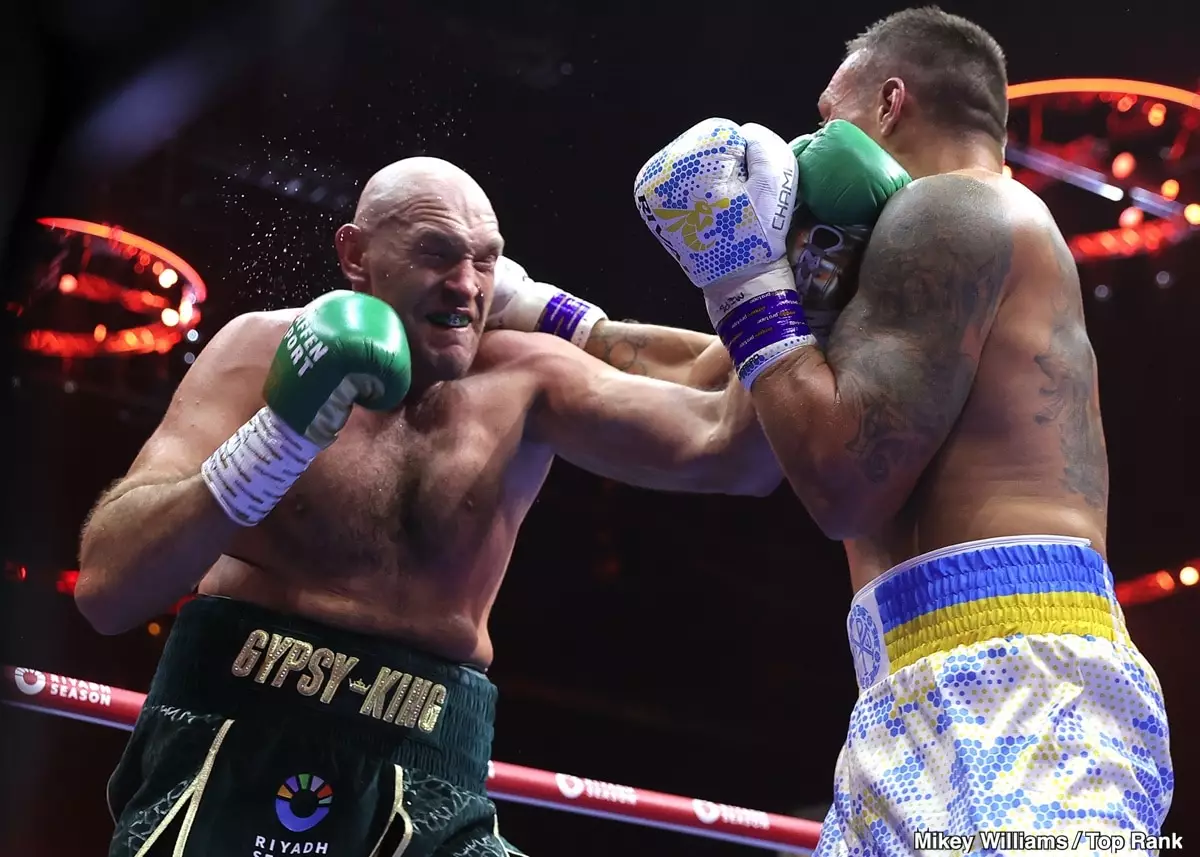Tyson Fury finds himself at a critical juncture in his boxing career as he gears up for a highly anticipated rematch against Oleksandr Usyk on December 21st in Riyadh, Saudi Arabia. Following a contentious split decision loss to Usyk earlier this year, Fury is under immense pressure to not only redeem himself but also to reinforce his position as the premier heavyweight boxer. However, the circumstances surrounding his preparation and mindset seem far from secure.
The Ghost of Past Performances
This past May, Fury displayed a stark decline in his boxing ability that had once dazzled fans and critics alike. Against Usyk, he appeared sluggish, out of shape, and noticeably older than his 36 years. This decline raises concerns about his physical condition, particularly as he dares to challenge one of boxing’s most agile and technically skilled fighters. In retrospect, his last notable performance was against Deontay Wilder in 2020, where he showcased unmatched athleticism and granite-like resilience. However, that Fury seems like a distant memory, as his recent performances raise questions about his speed and punch resistance.
Fury’s physique has fluctuated dramatically; a transformation that initially appeared remarkable now seems to have led to a plateau of underperformance. The chiseled frame that stunned audiences during the Wilder rematch has given way to a more flabby appearance, suggesting a lack of discipline and focus. This issue isn’t merely cosmetic; it directly impacts his fight strategy going forward. The impending rematch with Usyk presents a dilemma for the once-unstoppable heavyweight, creating a narrative of a fighter grappling with self-doubt and physical deterioration.
Denial and Its Consequences
Instead of acknowledging his shortcomings, Fury clings to a belief that he was unjustly assessed in the first match. His failure to accept responsibility indicates a stubbornness that could hinder his growth and ability to adapt before their second meeting. Such denial not only undermines his credibility but also impedes his chances of adjusting his strategy to effectively confront Usyk’s pace and finesse in the ring. When a fighter believes they performed adequately despite contrary evidence, it breeds stagnation—an enemy of any athlete striving for excellence.
Moreover, the context surrounding the rematch complicates matters further. The absence of a significant motivator to win—stemming from his promoter’s comments indicating that Fury could still pursue a lucrative fight with Anthony Joshua even with a loss—adds a layer of uncertainty. In a sport where triumph defines legacy, having such an easy out may dilute Fury’s drive to reclaim his former glory. Boxing is not merely about financial reward; it’s about legacy, respect, and the pursuit of greatness, aspects that could remain elusive if one is not fully engaged.
To claim victory, Fury has convinced himself that a knockout is the only acceptable outcome, reiterating this to the media in the hopes of rallying supporters. However, he seems to be overlooking a crucial fact: in Usyk, he is facing an opponent with superior technical skill and awareness, unlike Wilder, whose boxing IQ has been called into question. Usyk’s elusive maneuvers and ability to evade telegraphed punches make it unlikely that Fury’s previous strategies will be effective in this rematch.
The boxing world understands that victory over a technically sound opponent requires more than brute strength; it demands a combination of strategy, adaptability, and relentless pursuit of knowledge. For Fury to hope for success, he must be willing to reassess his tactics and recalibrate both physically and mentally. Relying solely on the prospect of landing a knockout punch may lead to miscalculation, leaving him vulnerable in a multitude of ways.
As the rematch approaches, Tyson Fury stands at a crossroads—facing not only a formidable opponent in Oleksandr Usyk but also battling the perceptions and realities of his own performance. This fight represents more than just a quest for redemption; it’s a pivotal moment that could shape Fury’s legacy in the annals of boxing. If he hopes to reclaim his title and earn back the respect of fans and critics, a profound transformation—internally and externally—will be necessary.
The stakes couldn’t be higher for Tyson Fury in his rematch against Usyk. The boxing community will be watching not just for the outcome, but also for signs of adaptability, resilience, and an acceptance of past failures as fuel for future success. Redemption, after all, is often found not merely in victory, but in the journey towards it.

